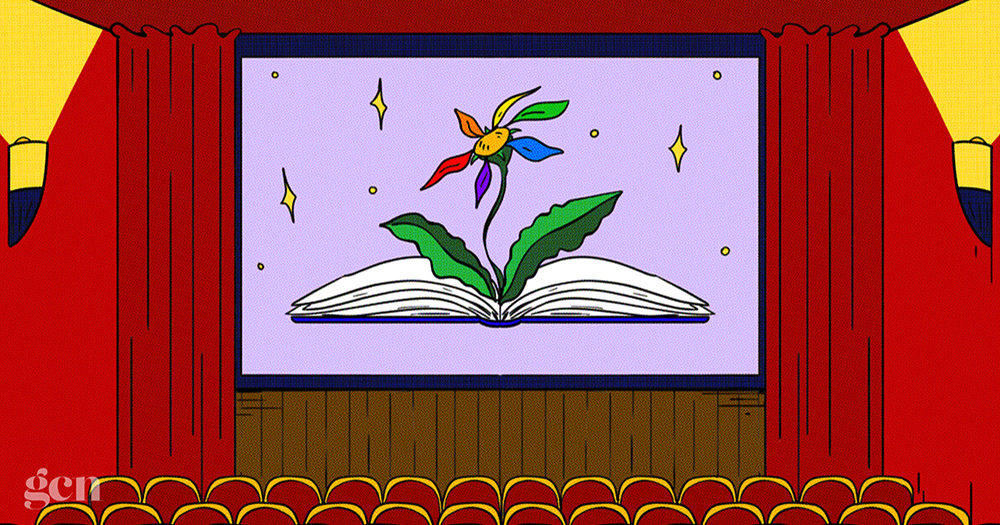GCNnewvoices in partnership with BeLonG To will platform the opinions and thoughts of LGBTQ+ young writers from across the country, speaking about issues that matter to them. A young woman talks about the lack of positive representation of LGBTQ+ people in culture and how it affects queer youth.
The first time I saw an LGBTQ+ character in a show directed towards kids was in season seven of Voltron: Legendary Defender when I was 12. Before the season, there was a lot of promotion of how the fandom would get to meet Shiro’s significant other, Adam. Adam appears in a flashback from before Shiro leaves for a mission and then dies after a minute or two on-screen. There’s a few seconds of Shiro being sad and then onto the next scene and Adam isn’t mentioned again.
There were a lot of arguments about whether this was queer baiting or not. Queer baiting is when creators hint at but then do not depict LGBTQ+ representation. Personally, I think it was. Not only was it queer baiting it was a classic example of the ‘bury your gays’ trope – where queer characters are killed off far more frequently than straight characters.
This trope is REALLY harmful. Imagine being an LGBTQ+ person and you see something online about how a show is meant to have a gay relationship, so you watch it and there is one scene with these characters together before one of them dies. It’s annoying and frustrating that a lot of the little representation we get ends in tragedy.
I don’t think I’ve ever heard a character say the words: “I’m lesbian” in anything. It’s usually just heavily implied or they say they’re gay. This wasn’t really something I noticed until I saw an online piece pointing it out. It kind of gives this idea that ‘lesbian’ is a dirty word that we shouldn’t say, and it bleeds into real life too. Try think for a second, how many times in conversation you noticed someone get quieter when saying lesbian. Maybe you’ve never noticed it, I know I didn’t before, but once you do it’s hard to forget about.
Heck, I do it a lot too, and it’s weird because I know being a lesbian isn’t something bad and I’ve never really struggled too much to accept my sexuality but I still do it. I think it has a lot to do with how sexualized lesbians are in the media, and a lack of good representation.
Another thing, often, LGBTQ+ characters are in their late teens or twenties, which again is annoying and weird because younger and older LGBTQ+ people exist. It can make it seem like younger people can’t be LGBTQ+ which can end up with them being told they are “too young to know” themselves, or being dismissed, and it really hurts. With the lack of representation for older LGBTQ+ people, it affects how younger queer people see their futures. Because when we do see an older LGBTQ+ character or person, it reminds us, “Oh wait, I can meet another girl, fall in love and grow old together – just like straight people do.”
Keep up to date with #GCNnewvoices across all our social media.
© 2020 GCN (Gay Community News). All rights reserved.
Support GCN
GCN is a free, vital resource for Ireland’s LGBTQ+ community since 1988.
GCN is a trading name of National LGBT Federation CLG, a registered charity - Charity Number: 20034580.
GCN relies on the generous support of the community and allies to sustain the crucial work that we do. Producing GCN is costly, and, in an industry which has been hugely impacted by rising costs, we need your support to help sustain and grow this vital resource.
Supporting GCN for as little as €1.99 per month will help us continue our work as Ireland’s free, independent LGBTQ+ media.
